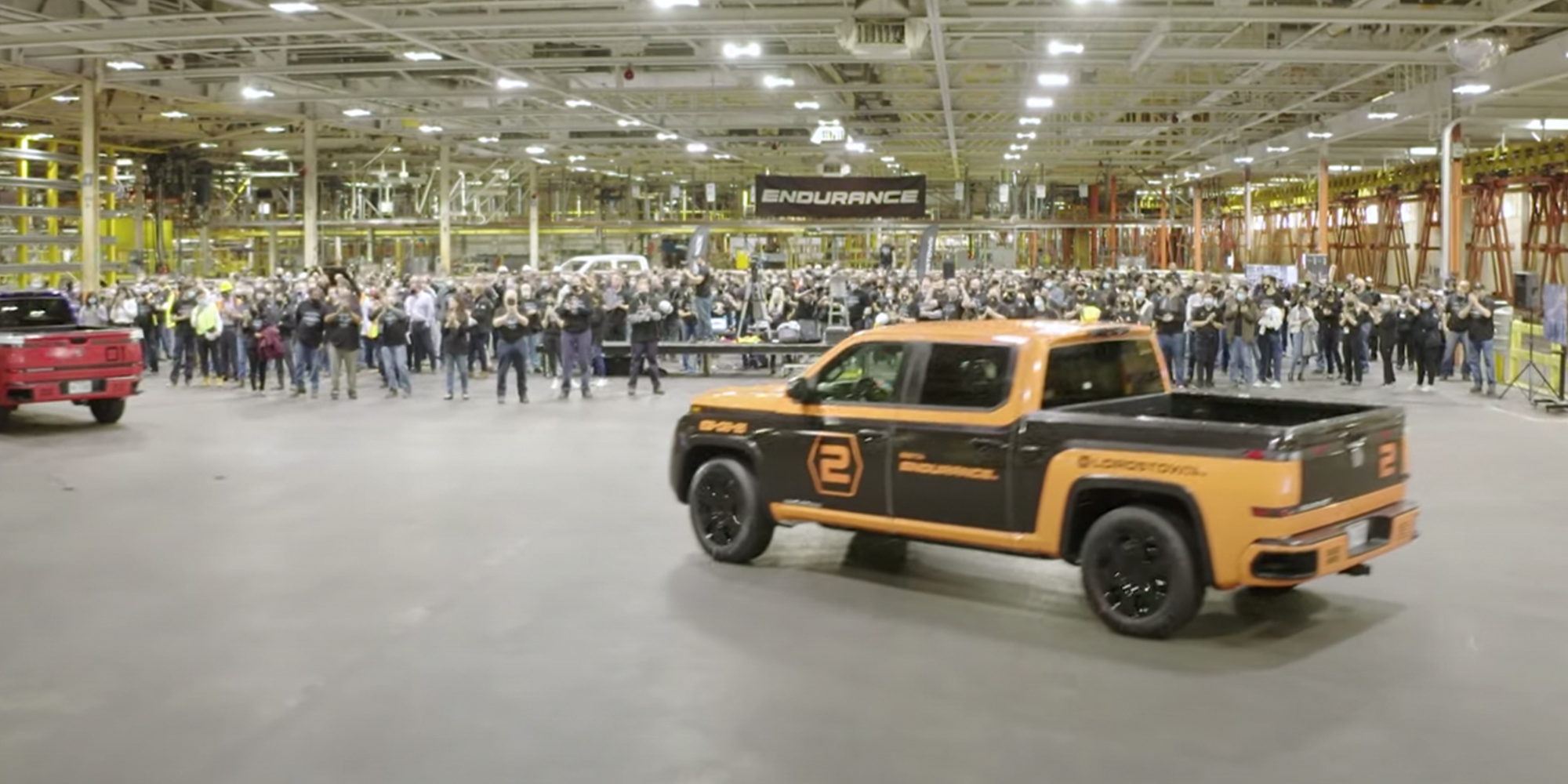
The entire second half of the event took a 90-degree turn away from the truck and centered on its special guest, former Vice President Mike Pence, who spoke for 25 minutes about former President Trump’s policies on jobs and manufacturing, China and the COVID-19 response.ĭespite those lack of details, Burns told the crowd in June that it had received 20,000 pre-orders. At the time, the company didn’t provide details on the interior, performance or battery of its planned electric pickup truck. Lordstown revealed its Endurance electric pickup in a splashy and political-leaning ceremony in June 2020. The company has said it plans to produce 20,000 electric commercial trucks annually, starting in 2021, at the former GM Assembly Plant in Lordstown, Ohio. Lordstown Motors acquired a 6.2 million-square-foot factory from GM in 2019. Workhorse shares are now hovering around $16.58, down 60% from its record price of $42.96 reached February 4. Postal Service, which caused shares to fall nearly 15% in the days following the news. Most recently, Workhorse lost a bid to become the supplier of electric vehicles to the U.S. Workhorse is itself a small company that was founded in 1998 and has struggled financially at various points in its lifetime. Workhorse holds a 10% stake in Lordstown Motors. Lordstown Motors is an offshoot of Burns’ other company, Workhorse Group, a battery-electric transportation technology company that is also publicly traded. Lordstown has an interesting history for company that is less than two years old.


In comments to the Wall Street Journal, Burns said the report contained “half-truths and lies” and that it was an attempt by Hindenburg to hurt its stock ahead of its first quarterly earnings report as a publicly traded company.
#LORDSTOWN ENDURANCE PRE ORDER FULL#
“We will be sharing a full and thorough statement in the coming days, and when we do we will absolutely be refuting the Hindenburg Research report,” the spokesperson said in an emailed statement.

Update: A Lordstown Motors spokesperson responded to TechCrunch on Friday afternoon. The report also provides photos and a 911 call of an incident in January when a Lordstown prototype vehicle burst into flames during a test drive. The short seller says that “extensive research reveals that the company’s orders appear largely fictitious and used as a prop to raise capital and confer legitimacy.” The firm goes further and alleges that Lordstown founder and CEO Steve Burns paid consultants for every truck pre-order as early as 2016 while he was leading Workhorse. In a report issued Friday, Hindenburg disputes that the company has booked 100,000 pre-orders for its electric pickup truck, a stat shared by Lordstown Motors in January.

Hindenburg’s short position is based on a company that it says has “no revenue and no sellable product, which we believe has misled investors on both its demand and production capabilities.” Shares have recovered slightly and are now down about 15% from the previous day’s trade. Hindenburg said in a report Friday that it has taken a short position on Lordstown Motors, causing shares to plummet 21%. This time it’s Lordstown Motors, the Ohio electric automaker that went public after merging with special-purpose acquisition company DiamondPeak Holdings Corp., with a market value of $1.6 billion. Hindenburg Research, the short-seller firm whose report on Nikola Motor led to an SEC investigation and the resignation of its founder, is targeting another electric vehicle company.


 0 kommentar(er)
0 kommentar(er)
